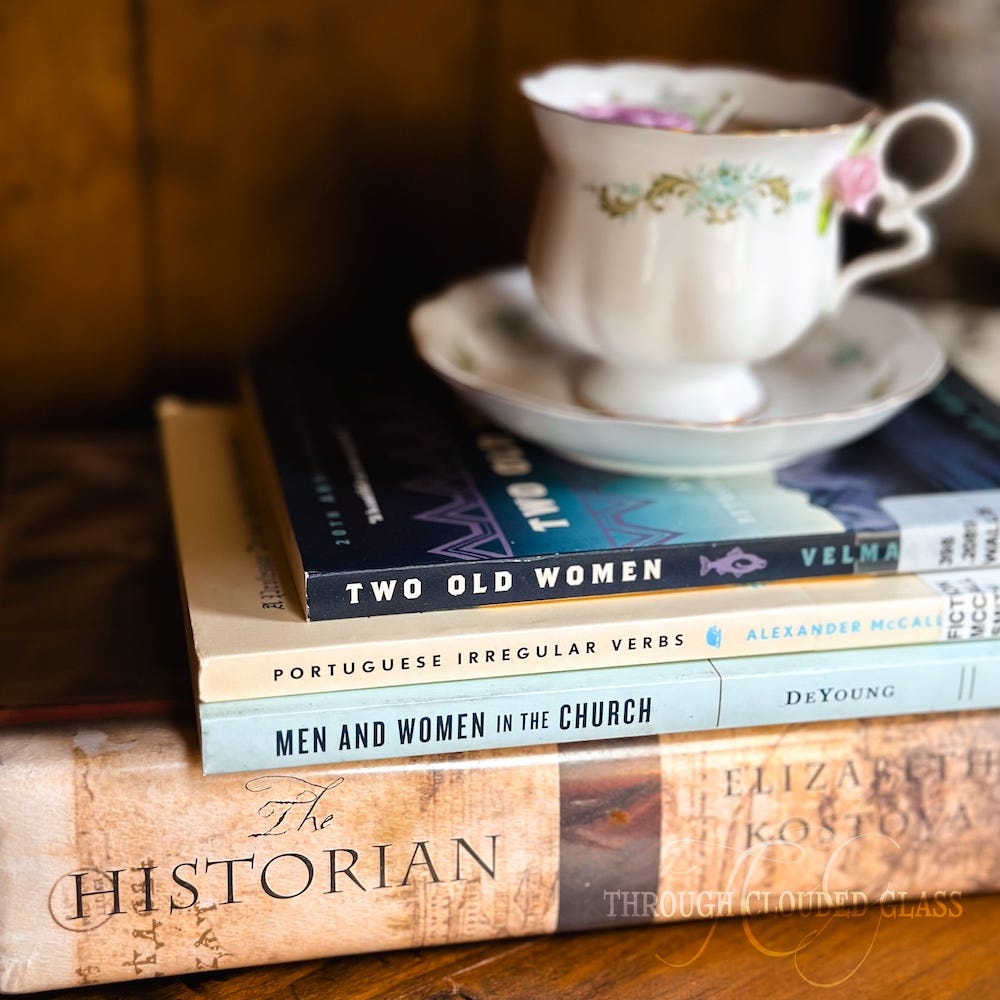
In my extra week of summer, I took some time to finish up books that I have been working on for months. I am one of those people who has 10+ books going at any one time, but every now and then it gets tiresome and I put some concerted effort into reducing my “currently reading” stack.
In addition to the satisfaction of turning the last page, a few of these books were perfect for late summer, because they got me in the mood for the change of the seasons!
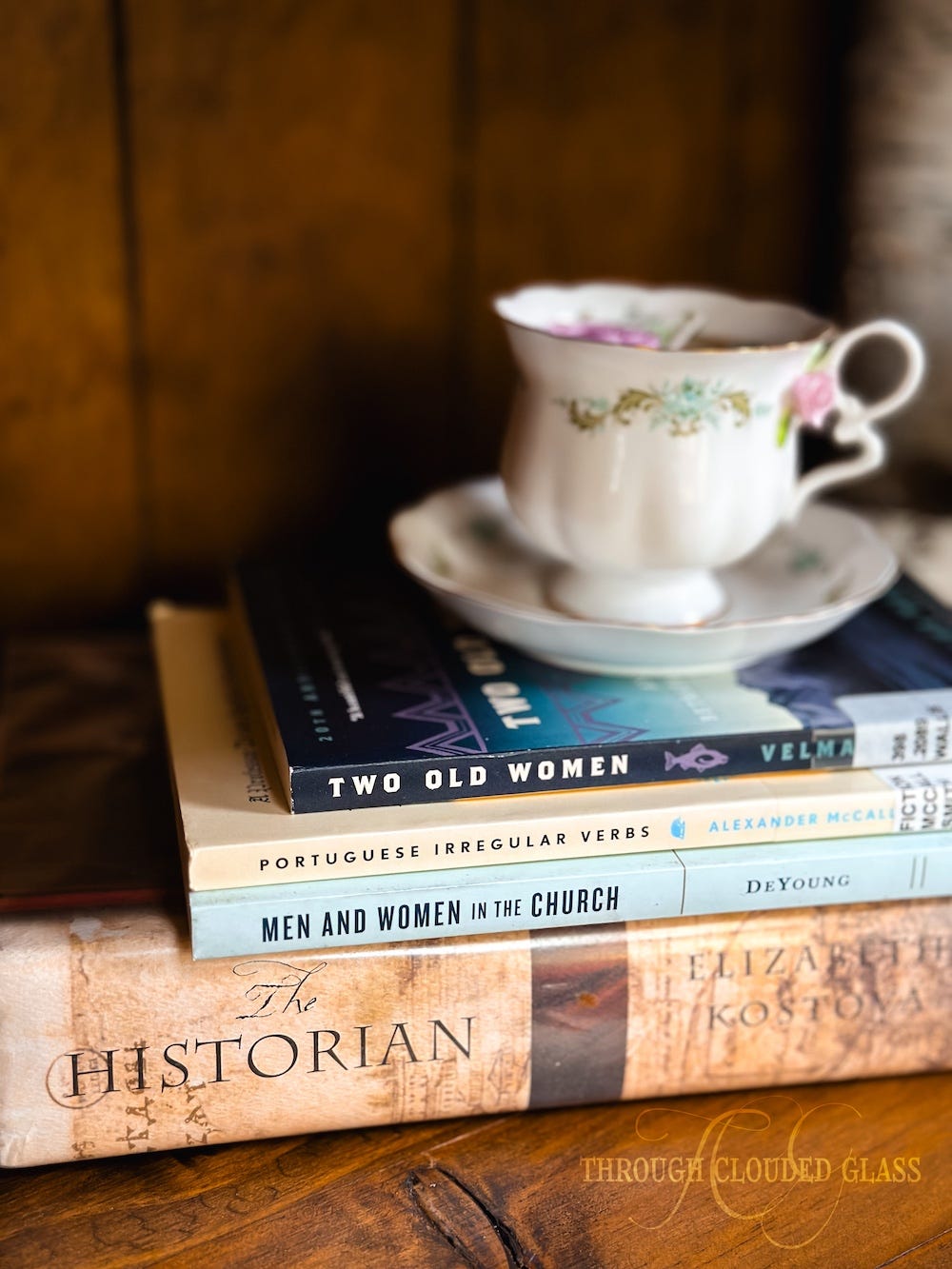
Men and Women In The Church by Kevin Deyoung
I read this book because it is on my son’s reading list for the school year, and I wanted to make sure I liked the approach before handing it to him. My conclusion: I think it will be a great one for helping him understand the biblical roles of men and women in a church environment.
Deyoung comes from a complementarian perspective and writes a compelling defense for this biblical position while remaining very readable for the average Christian. His respect for women and their important roles in church also shines through in a refreshing and compassionate way, but he holds fast on the parameters for men and women laid out in Scripture.
When I’m thinking about this book for my son, there is one section on the purposes and differences in men’s and women’s bodies that might be slightly graphic, so I put a sticky note on it to discuss when he reaches that section. Otherwise, I am very glad he will be reading this book. It handles these sticky topics with conviction and grace.
Content Notes: One section discussing sexual differences between men and women.
Bottom Line: Great summary of the biblical role of men and women, and uplifting to both.
The Historian by Elizabeth Kostova
A friend recommended this book to me since she knows I read and appreciated Dracula a few years back. She said it had a very similar vibe to the classic, touching on vampire legends without all the modern indulgence of darkness. I decided to give it a try.
In this book, the main character finds a mysterious book in her father’s library with a print of a dragon holding a banner with “Dracula” written on it. She is curious and asks her father about it. He takes her on travels throughout Europe and starts telling her the story of when he first found that book, and everything that happened after.
Much of the book is epistolary, or written as a story being told in bits, with excerpts from historical documents being thrown in too. The effect of this is that the reader feels they themselves are a bit of a historian, putting the pieces together along with the characters as they research the historical basis for the Dracula legends…and as they start to wonder if there might be truth to them.
The way the book is written is masterful, and I found myself amazed at the amount of research the author must have put into actual historical events and places in order to write this! The travel writing and descriptions of various countries are particularly vivid and made me feel as if I had visited these places myself. I will include a couple things in my content notes below, but this book was so atmospheric and written so beautifully, I couldn’t help but enjoy it.
Content Notes: The characters sometimes mention the occult (in a non-sympathetic way), because Dracula is involved with it as the villain. Some gruesome descriptions of the violence that the historical Dracula committed. Some characters get a little “frisky” (not described).
Bottom Line: If you liked Dracula, this book is in that same vein. Mysterious, doesn’t wallow in the dark, good triumphs over evil.
Two Old Women by Velma Wallis
This is a retelling of an old native Alaskan legend. Two old women are left by their struggling tribe to die in the Arctic Circle. The tribe regrets leaving them, but the women are old and complaining, and they have become a burden for the tribe to support. The women are terrified and heartbroken about being left, but they eventually pick themselves up and figure out how to survive on their own, despite their frailty.
Though it’s a horrible thing that this was ever done to the elderly, I really enjoyed this story of older women learning that they can still be strong and useful if they stop viewing themselves as helpless. They learn to take action instead of complaining, and eventually the tribe comes to respect and honor them. They never leave their elderly to die again.
This was a short, quick read, and I loved it. I’d recommend it.
Content Notes: Some vague mentions of “becoming a woman”, moral implications of leaving the elderly to die.
Bottom Line: An uplifting story, written like a fleshed-out legend, atmospheric.
Portugese Irregular Verbs by Alexander McCall Smith
Since I love another of Smith’s series, the No. 1 Ladies’ Detective Agency, I thought I would give this series a try. In this book, Dr. von Igelfeld, a philologist who wrote a book called Portuguese Irregular Verbs, travels around with his colleagues and encounters various silly adventures.
This series is written in a similar way as the No. 1 Ladies’ Detective Agency in that smaller storylines, which mostly wrap up in a single chapter, are woven together into a larger story. Each incident is used to paint the characters. I can’t quite decide what I think of Dr. von Igelfeld - he’s a little whiny, a little full of himself, but somehow in a lovable way. I found I was rooting for him in spite of myself.
I don’t know if I’ll pick up the next book or not, but comparing the two series from Smith, it was a different flavor of the same cuisine. I will probably give this series a chance, but No. 1 Ladies’ Detective Agency is always going to be my favorite.
Content Note: One of the stories in this book involves a “guru” giving von Igelfeld a “prophecy”.
Bottom Line: Humorous book. Not sure about the characters, but I think if I pick up the next book I’m primed to grow to like them.
I read Men And Women In The Church in preparation for the homeschool year, The Historian gave mysterious autumn vibes, Two Old Women spanned several seasons with a special mention of fall colors, and Portuguese Irregular Verbs felt back-to-schoolish. So by the time I closed all these books, I was pretty much ready for pumpkin spice candles.
Do you have any books that are a good transition from summer to fall?
 Today
Today
I am continuing to share some of the books I read over the summer - the following books helped me get out of my reading slump!
The Love Haters by Katherine Center
A friend got me hooked on Katherine Center a couple years ago. Every book I’ve read from her is like an early 2000s rom-com movie in book form! This one is about a documentary filmmaker, who must produce a promo for the National Coast Guard. The only problem is that she can’t swim, and can’t stand to see herself in a bathing suit…but somehow still ends up thrown together with a handsome coast guard rescue swimmer.
A large theme of this book was about body positivity and learning to appreciate your body - which was a bit heavy-handed, but didn’t keep me from enjoying the story. I also liked how all the characters had a nice ending in this book - Katherine Center always gives her books a happy ending, but even the unlikable characters end up with something good in this one.
Occasionally Center’s books can have a bit of content that I don’t appreciate, but this book had less of a need for content notes than some of her others (see below). Overall, this was probably one of my favorites from her!
Content Notes: Some cursing (including a few uses of the f-word), we find out two side characters slept together, mentions of characters living together in the past, etc.
Bottom Line: Pick it up if you enjoy old-school rom-coms.
In The Company Of Cheerful Ladies by Alexander McCall Smith
This is book six in the No. 1 Ladies’ Detective Agency series, which is basically my before-bed, comfort-read series. In this one, Mma Makutsi starts taking dancing lessons and meets an awkward man to whom she feels obligated to be kind - but she ends up being surprised by him in the end. One of the apprentice mechanics quits the shop, and Mma Ramotswe’s former husband shows up threatening to cause trouble for her.
Smith does a wonderful job of weaving all these story elements together throughout the book. What I like most about these books is that most of the problems are serious but not life-ruining, and the characters admire and respect each other as they figure out solutions. There is a fondness among all of the characters that is just comforting to read. This book was more of what I enjoy about this series. Highly recommend for a night-time read.
Content Notes: Infidelity of some of the villains/side characters.
Bottom Line: If you need a calm-down book before going to sleep, this series might be it.
Wear It Well: Reclaim Your Closet and Rediscover the Joy of Getting Dressed by Allison Bornstein
At the beginning of the year I shared some of the reading challenges in which I’m participating, and I decided to shift one of my 5x5 categories to include books about clothes and style. I’ve been wanting to make better use of the clothes I have and learn to appreciate my closet instead of adding new things constantly, and Wear It Well has been a great inspiration book for that.
This book opens with encouragement for cleaning out your closet, and then learning to edit your closet according to three words that you must choose to describe your style. Bornstein also gives us her nine closet staples, but the way she gives recommendations leaves so much room for you to interpret those pieces in a way that fits with your own style.
I really love the idea of trying to sum up one’s style in three words, and using those words to help you narrow the choices when cleaning out your closet or shopping for new clothes. It’s something I’ve been keeping in mind as the stores roll out their fall offerings, appreciating a garment while being able to say “it’s not for me”.
Bornstein gets a little “woo woo” in certain parts of the book - for example, near the end she recommends setting up a style “altar”, which is just bizarre and New Age-y. No, thank you. However, aside from religious/philosophical differences, I found this book really helpful and encouraging for defining my own style and figuring out ways to use all my clothes in a way that is unique to me. I’d recommend it, just keep in mind you might need to gloss over a couple weird elements.
Content Notes: Weird religious elements here and there (see above).
Bottom Line: If you enjoy fashion and are trying to hone your style, this would be a good place to start.

This summer has been odd when it comes to reading. I haven’t read nearly as much as I usually do, and the books in this post might be partially why. My summer reading rhythm was thrown off by two books with endings that left me severely annoyed and maybe I just lost my confidence in what to pick next.
I’m just now getting back on track, so come back next week for better recommendations. Read on if you want to see which books irritated me so much.
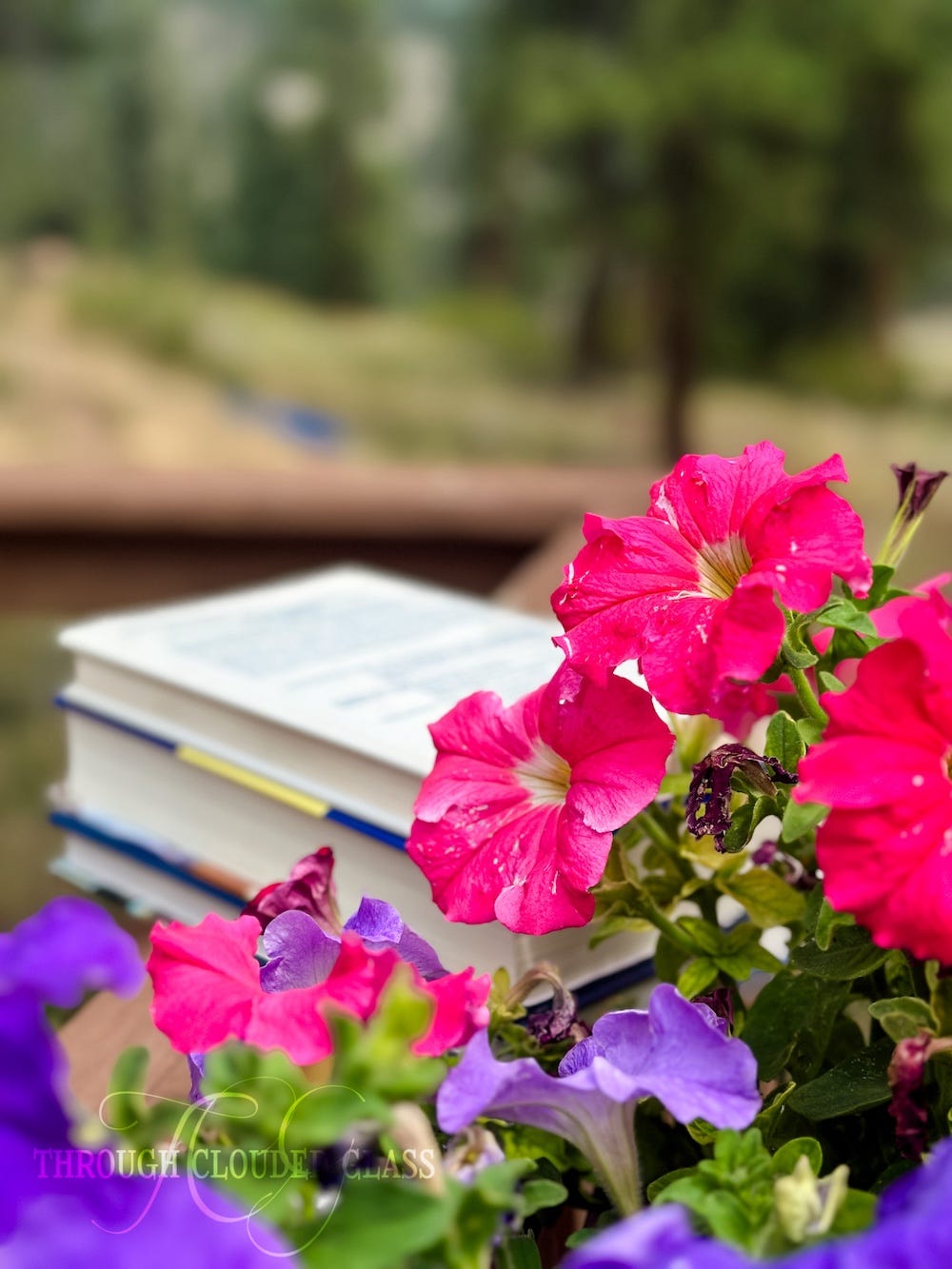
Old-Fashioned On Purpose by Jill Winger
I picked this book up on a whim, and ended up finishing it on audio. It’s written by a homesteading blogger, and I enjoyed reading how she runs her farm, home life, and businesses with an old-fashioned perspective (or at least as old-fashioned as you can be when your business is largely online). I especially enjoyed her thoughts on cooking and developing in-person community, and I gained an excellent recipe for homemade all-purpose cleaner! If you would like inspiration or direction on developing old-fashioned skills, this is the book to read.
Content Notes: Nothing significant.
Bottom Line: Interesting read if you are into modern homesteading and old-timey things.
Doomsday Book by Connie Willis
Okay, this is going to be a longer one, because I have to explain why I didn’t like this book. I have been enjoying some of Connie Willis’s books in the past year, and thought I would try this time travel series. In this book, set sometime in the future, historians don’t just study historical texts - they travel back in time and observe history first hand (intriguing, right?). Many dangerous centuries have been closed to time travel, but the 1300’s just opened, and Kivrin, a young historian, travels back to 1320…except something goes wrong. Meanwhile her friends back at home are dealing with an epidemic and other catastrophes that are preventing them from getting Kivrin back from the Middle Ages.
Alot of this plot revolves around The Black Death, and when people start dying of the plague, alot of existential questions are raised about the existence of God, suffering, etc. Kivrin doesn’t believe in God’s existence and thinks some blasphemous things about God, while some in the Middle Ages have their faith strengthened by her presence there.
As her friend (Mr. Dunworthy) is trying to get her back, he starts thinking in analogies of God sending Jesus, and the people on earth crucifying Him. In Dunworthy’s version of God, God watches helplessly and can’t do anything about it, and Jesus, who just wanted to help the people, dies for no reason. So Dunworthy reflects a “god” who is impotent, Kirvin reflects a “Jesus” who helps people by caring for them but can’t heal their suffering in any way, and the town priest who believes Kivrin is a saint that has come to ease their way to Heaven is misguided.
I was hoping for more clarification or depth in the ending, but Willis leaves these questions and distorted views of God unresolved by the end of the book. The meaning in the end seems to be since God doesn’t exist or can’t stop bad things from happening, all we can do is take care of each other in bad times.
There is one comment from a young boy in the story that attempts to give some meaning to all this tragedy. Kivrin is relating how the town priest believed she was a saint that God sent from Heaven to help them in the plague, and the boy comments that is what she did - because she was there, no one had to die alone or be left unburied. The comment feels like a bone thrown to readers of faith, but in the end the people are all still dead, aren’t they? And that seems to be the point of the book. This book was a tragedy with no real comfort or answers, and the blasphemy and distortions of God’s character made the message of this book neither good nor true. So this was not one I’d recommend.
Additional Content Notes: A character comes across a couple fornicating in the Middle Ages timeline, lots of death.
Bottom Line: Would not recommend, unless you don’t care about my problems outlined above and want an interesting way to be depressed.
Devolution: A Firsthand Account of the Rainier Sasquatch Massacre by Max Brooks
Ah, another book I can’t recommend.
I decided to listen to this book after hearing a homeschool influencer speaking about it. The synopsis sounded intriguing, and she was saying that this book had a really realistic portrayal of marriage - particularly how two people can kind of drift apart, but also how that drift can be reversed. In her defense, she was only partway through the book when it was mentioned, and a lot of the problems I’m going to talk about happened in the last quarter of the book.
As the story opens, our main character has started to treat her unemployed husband in a patronizing way, sometimes embarrassed of him. They move to a modern, minimalist community deep in the Washington woods that relies heavily on modern technology. When a volcano erupts nearby, their technology-run community is cut off from the rest of the world, and the residents learn that Bigfoot may not actually be a myth.
I did indeed find the initial portrayal of the apathy that can develop in marriage pretty realistic. The wife clearly loved her husband but struggled with looking down on him. I was interested to see how their relationship dynamic might change as they started facing this crisis, and that’s what ultimately kept me reading.
Spoiler ahead.
There were hints of the wife seeing her husband in a new light as he takes initiative to help the other residents, but unfortunately it was never fully fleshed out. In the end (spoiler), the husband lays down his life to save his wife and another resident. The grief that such an event would bring was not explored very much, and she doesn’t ever consciously recognize that she lost a good man that was very worthy of all her respect. Instead, the wife pushes her grief aside and becomes a vicious killer who leaves the community, presumably to hunt down the remaining creatures who killed her husband. We are left with the implication that she has left some of her humanity and become her own kind of monster.
I found myself so disappointed, and very annoyed, with this ending. There could have been such a beautiful underlying message about marriage, and it would have made the book into something more than just a gratuitous Bigfoot horror story. Instead the marriage aspect of the story is lost completely and we’re left with a post-modern, evolutionary worldview dragging the ending down. I just can’t tell you how bummed I was. It could have been so good.
Additional Content Notes: Evolution assumed, homosexual couple, lots of cussing, VERY gruesome descriptions of deaths (in the last quarter of the book).
Bottom Line: Overall, would not recommend, unless you want to dwell on the brutality of nature and gruesome death.
I went back to my old standby genres after these books made me regret branching out, so I’ll share a few winners soon! Expect several book posts in the next couple weeks.
What is the best book you’ve read this summer?
I have been deep in the homeschool world for the vast majority of my life, to the point where I sometimes forget how not-normal homeschooling must seem to the average mom. My mom started homeschooling me when I entered the 4th grade, and my own kids have only ever known being homeschooled. I’ve been going to homeschool conferences ever since my oldest was in kindergarten, and I’ve read more books about homeschooling than I can remember off the top of my head.
But sometimes I try to put myself in the shoes of someone who has just started to become curious about homeschooling. Maybe they have seen beautiful portrayals of a homeschool lifestyle on social media and they find it appealing. Maybe they’ve recently listened to a podcast or video with ideas that intrigued them. Maybe they know a homeschool family and would just like to understand them better.
If a friend told me they were curious about homeschooling, these are the books that I would pull off the shelves and hand to them.
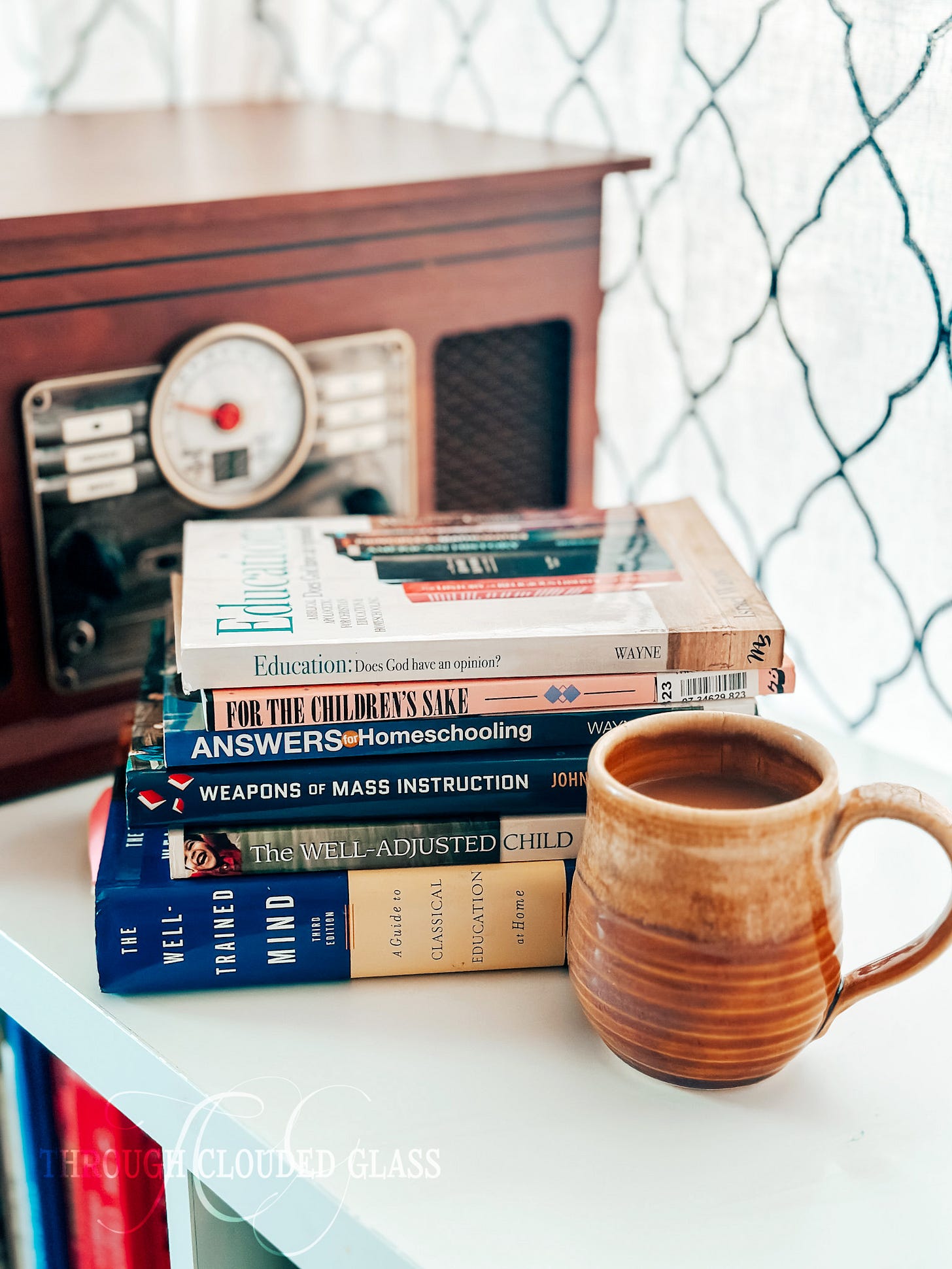
For someone who just wants to know how it all works:
Answers For Homeschooling: Top 25 Questions Critics Ask by Israel Wayne
Whether you are mystified about the whole idea of homeschooling, or you want to be able to explain your interest in homeschooling to friends and family, this book will be a help to you. Wayne covers questions from critics and also addresses many practical homeschooling concerns.
For someone who wants to homeschool but is worried about socialization:
The Well-Adjusted Child by Rachel Gathercole
Gathercole addresses every concern about socialization you could think of in this book. She defines what good socialization is, then discusses issue such as family relationships, citizenship, peer-to-peer friendships, conversations between kids and adults, bullying, and being “cool”. If you need reassurance that your child won’t be missing out by being homeschooled, this is the book you should read.
If something doesn’t feel quite right about public education, but you can’t quite put your finger on it:
Weapons Of Mass Instruction by John Taylor Gatto
This book has been around for. along time, and though it’s not explicitly about homeschooling, it does paint a picture of what we could do differently (and hopefully better) than the current school system. Gatto was an award-winning public school teacher who quit teaching after thirty years and started speaking about the problems he saw with education in America. He weaves in information about the history of the public school system, and his insights are fascinating. Also see Dumbing Us Down by Gatto (shorter, also very good).
If you want to broaden your ideas about what education really is (hint: it’s not about reading textbooks and taking tests):
For The Children’s Sake: Foundations Of Education For Home And School by Susan Schaeffer Macaulay
This book was my first introduction to the idea of “living books”. As someone who has always loved to read, I was inspired to think of education in terms of connections and ideas, instead of merely remembering things until it is time to take a test. Macaulay gives an accessible introduction to the educational philosophy developed by Charlotte Mason, but whether you choose that style of homeschooling or not, there are so many sound principles in this book that are worth considering.
If you want to work on developing a truly Christian view of education:
Education: Does God Have An Opinion? by Israel Wayne
I always put a disclaimer when recommending this book to someone that the title sounds more provocative than the book actually is (at least in my opinion). Wayne gives a thorough argument for Christian education, and the chapters in the second half of the book address how to approach every educational area from a Christian worldview. These last chapters are where the book really shines! I’ve had certain children read the math chapter when they repeatedly asked “why do we have to learn math anyway” - and I can report that attitudes improved significantly.
If you want reassurance and help for a rigorous academic outcome from homeschooling:
The Well-Trained Mind by Susan Bauer
First I want to say, don’t pick this one up if you are overwhelmed or are already dealing with learning struggles. This book is not for everyone - I myself picked it up when my oldest was in kindergarten and was immediately discouraged because I couldn’t picture doing everything this book suggests. I tried it again closer to middle school, and have found it alot more helpful. However, if you are an academic person yourself, and you want a guide for providing rigorous academics for your kids, this book is it.
If you think you are ready, and you just need a push to dive in:
The Call Of The Wild And Free by Ainsley Arment
The author of this book is alot more “wild and free” than me, but even though our styles are different, I was pleasantly surprised when I picked up this book. The joy of a homeschool lifestyle bubbles off these pages, and I found myself remembering everything I love about homeschooling while reading. Arment paints a vivid picture of just how beautiful homeschooling can be, and I think it’s great for inspiring hesitant moms to jump in.
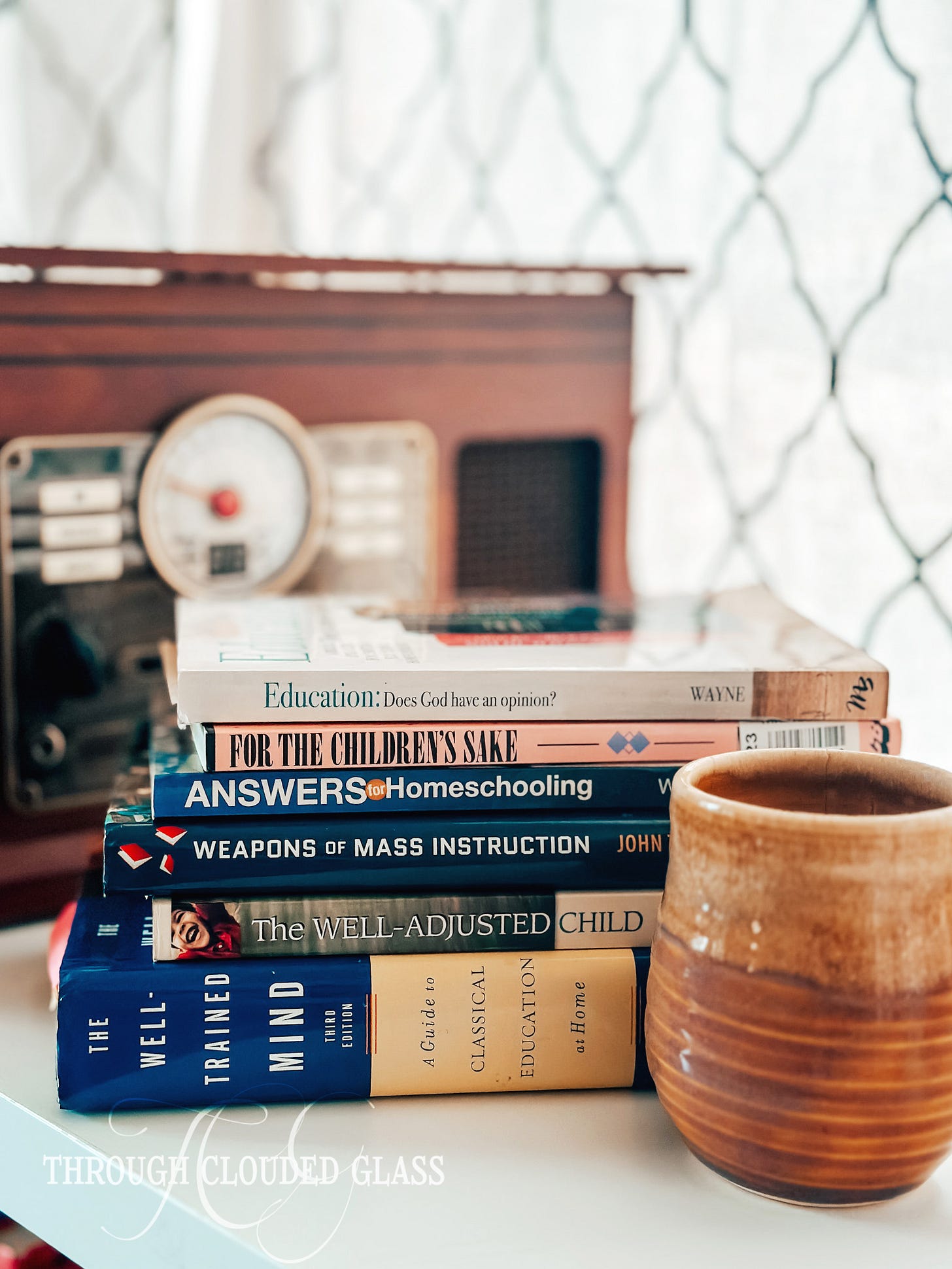
I hope if you are curious about homeschooling, you’ll find something to encourage you in this booklist - this doesn’t even scratch the surface of the amount of homeschool books out there, but it’s a good place to start!
Road trip reading time is my favorite - I finished five books in the last couple weeks of May because of a road trip we took to see our dear friends a few states over! I’m definitely in a thriller/suspense phase right now. Here are my opinions on my most recent reads.
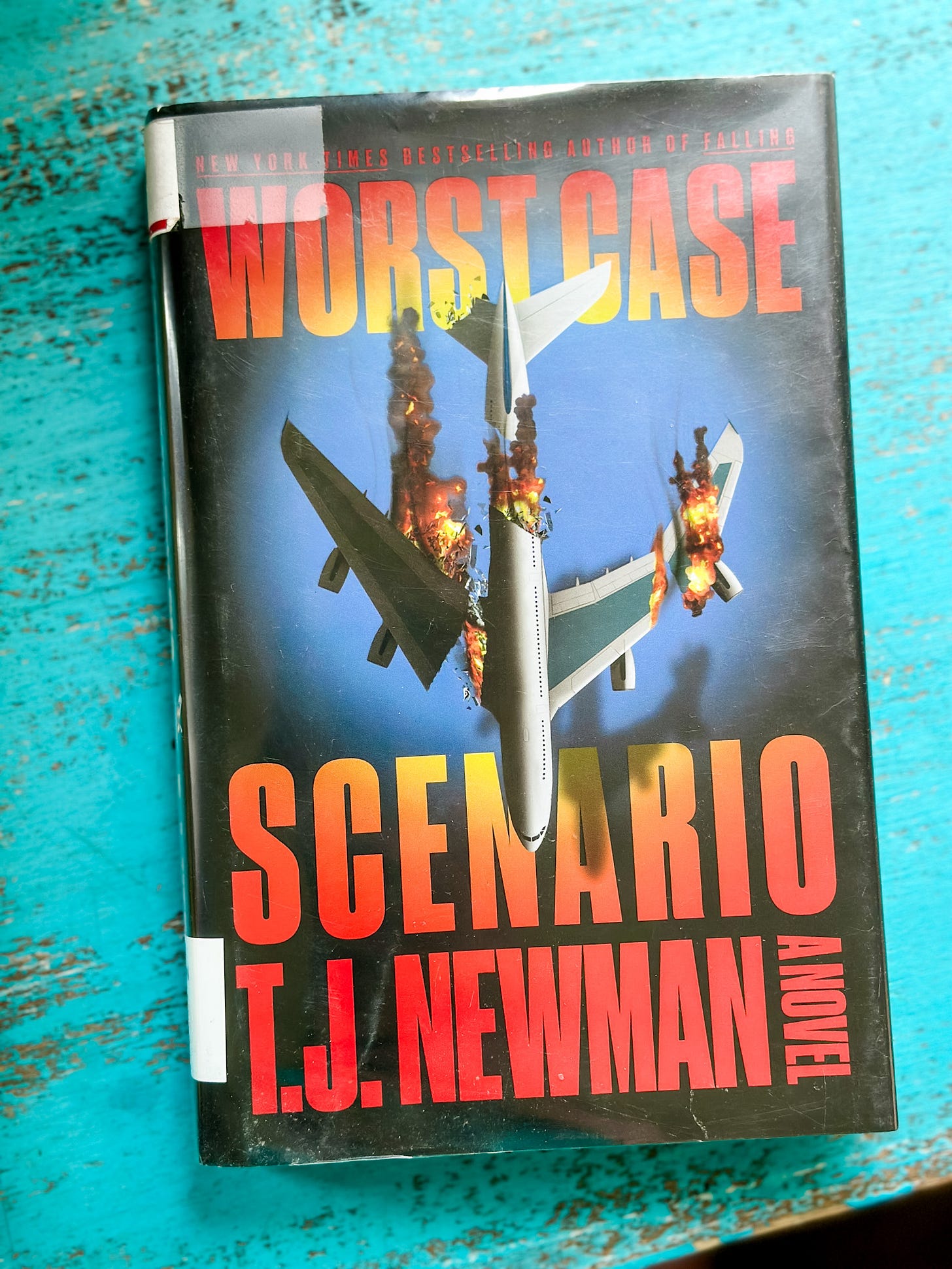
Worst Case Scenario by T. J. Newman
In this book, a plane crashes into a nuclear power plant. The resulting damage threatens a nuclear disaster that would wipe out the United States, and it’s up to the everyday people of the town and workers at the plant to prevent that from happening. There was alot of heartbreak in this book, but I thought it was really beautifully done and life-affirming. It also lead to an interest in Chernobyl for me, so I’ve been reading more about that since finishing this book.
Content Notes: Lots of peril, disturbing descriptions of radiation poisoning, some bad language.
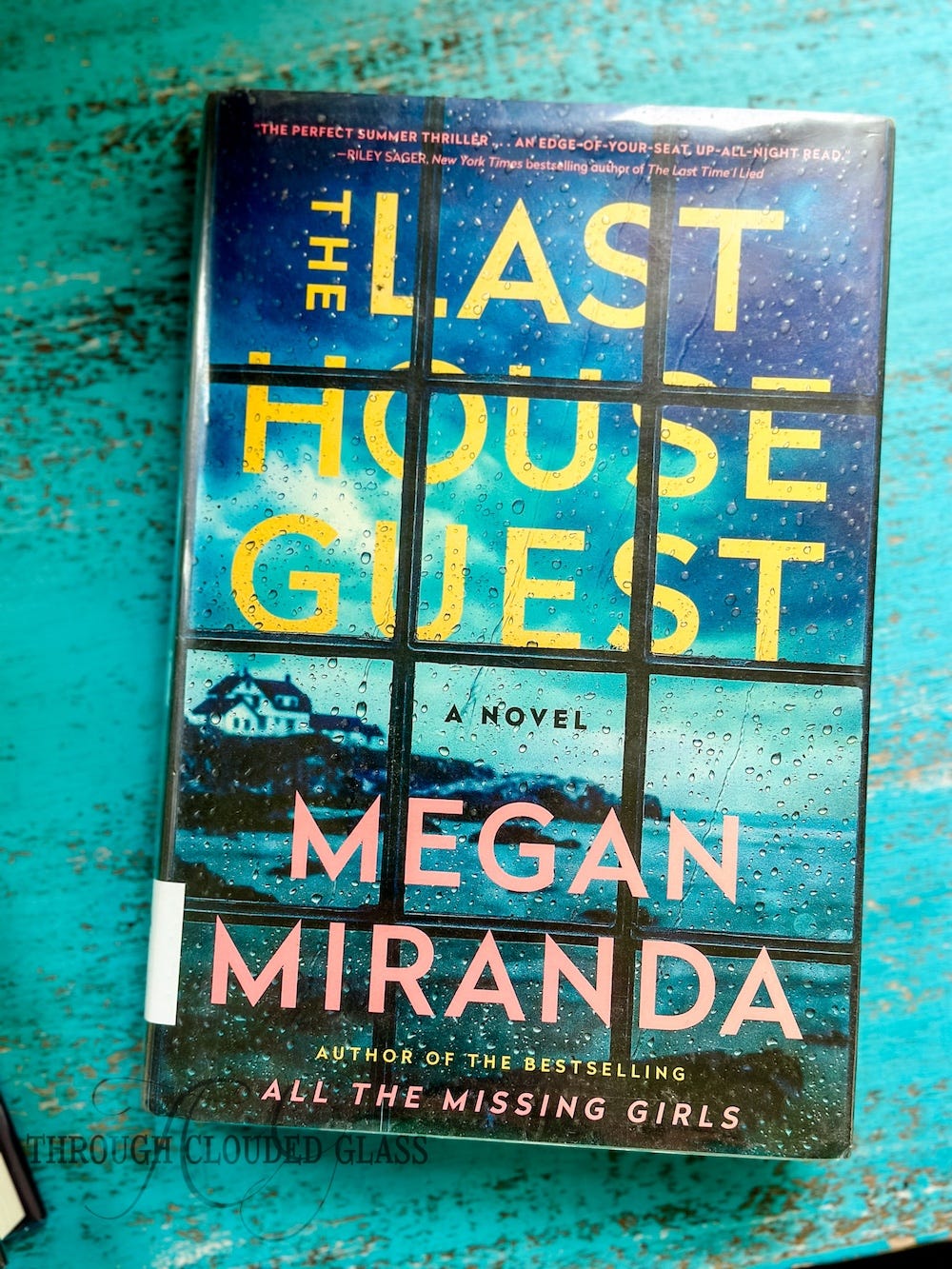
The Last House Guest by Megan Miranda
Avery is a year-round resident of Littleport, Maine, and Sadie is just a summer resident. But one summer Sadie strikes up a friendship with Avery and changes her life…until a few years later when she is found dead, and Avery is left wondering if there was more behind their apparently spontaneous friendship. Megan Miranda always paints such a vivid setting in her books, and the town itself almost becomes a character that affects what all the main characters do - this book was like that as well. If you like small-town suspense, this book was pretty intriguing.
Content Notes: Moderate bad language, two characters sleep together (not described).
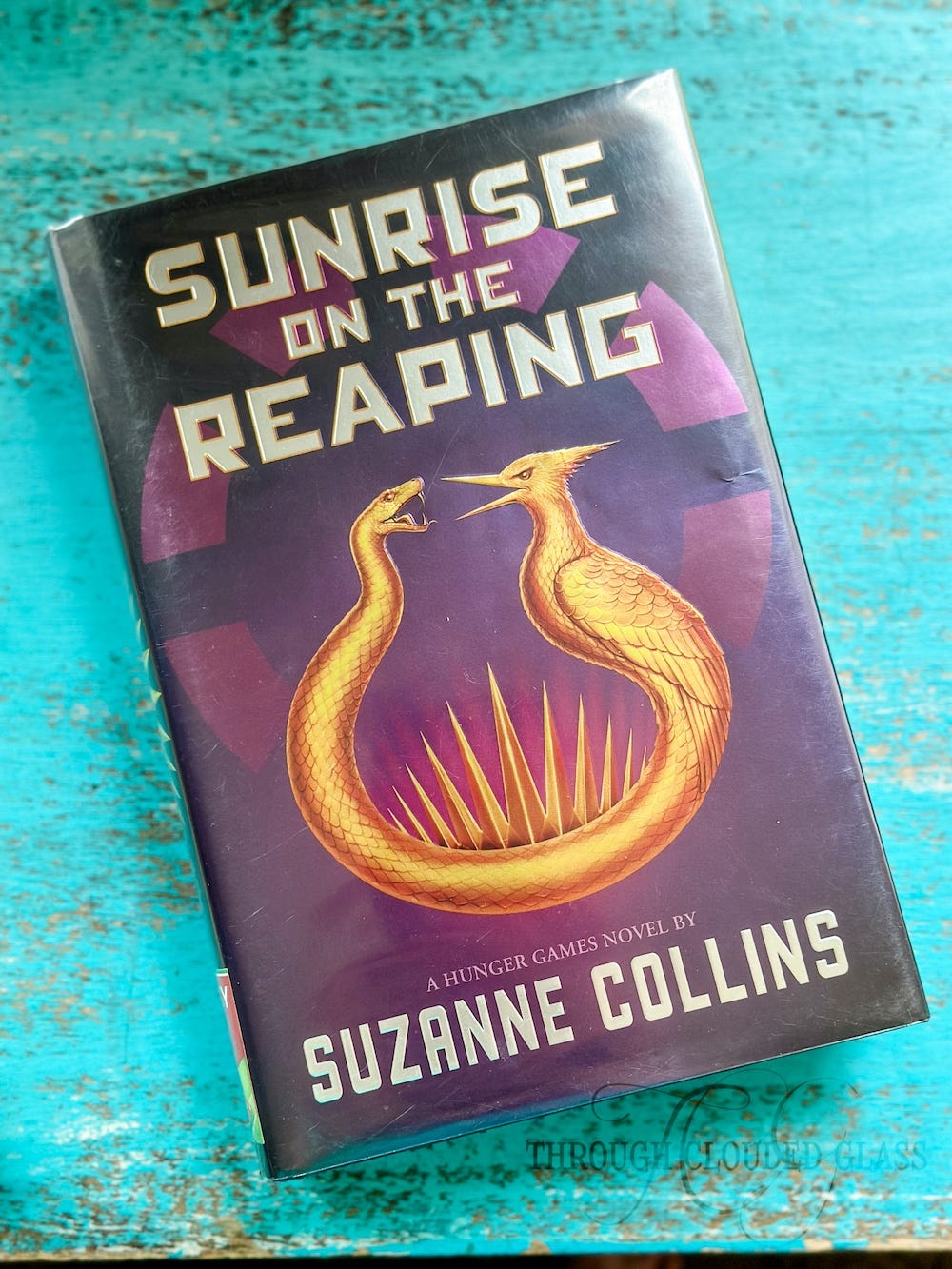
Sunrise On The Reaping by Suzanne Collins
I just read The Ballad Of Songbird And Snakes in order to get this book next. This follows Haymitch’s hunger games - how his family is ripped apart when he is chosen for the games, and the dire consequences he suffers for not playing by the rules. This one made me cry, but I loved how we got a peek into the “ever after” of all the characters from the other books in the last chapter.
Content Notes: Descriptions of violent deaths.
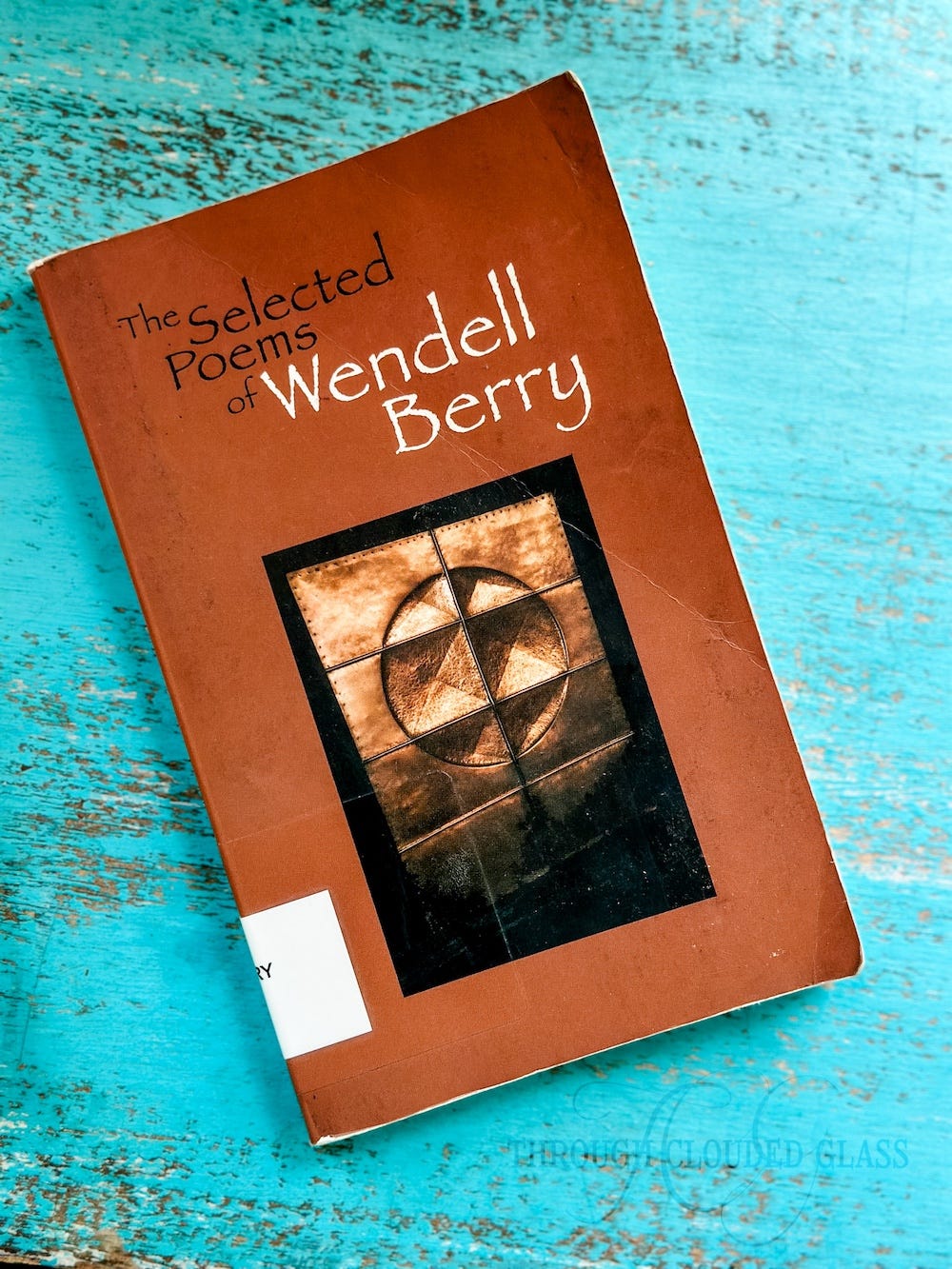
The Selected Poems Of Wendell Berry by Wendell Berry
After reading an article about where to start with reading Wendell Berry, I decided to try picking up a book of his poems. I have tried reading Jayber Crow before, but Berry’s writing style and way of viewing the world is so different from other books I’ve read, I’ve had a hard time getting into it. This poetry collection remedied that for me - I think I understand his philosophy and worldview better just after reading these poems. There were several poems in this collection that I saved to read again later. I will always have a harder time with poetry that doesn’t actually rhyme, but this book went a long way in helping me to see the appeal.
(No photo, I read this next one on Kindle.)
The Watcher Girl by Minka Kent
I needed a quick read for the last stretch of our recent road trip, and this book captured my attention pretty quickly. Grace discovers that her ex-boyfriend has a new family - but he has moved to Grace’s childhood home, married a women that looks alot like Grace, and his daughter is also named Grace. Something weird is going on, and Grace returns to her hometown to figure out what it is. I may have suspected a little bit of where this book was going, but the ending was surprising enough to be satisfying.
Content Notes: Moderate amount of bad language, two characters smoke marijuana.
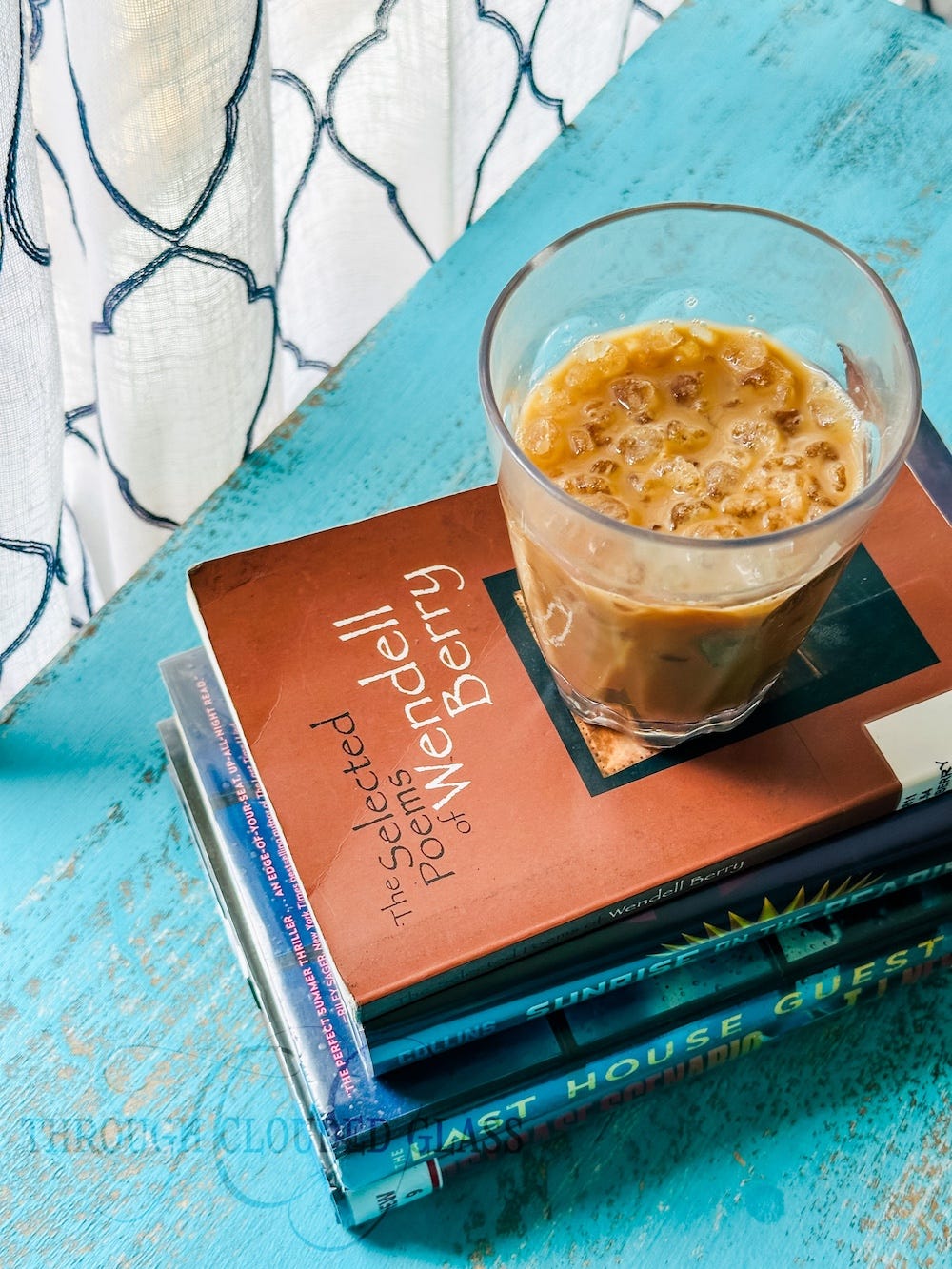
I’ve got some great books going for my summer reading right now, so keep an eye out for another book roundup soon!

Remember when I said I was going to share books in smaller, more frequent posts this year? Well, 2025 has had different plans, so this is a round-up of everything I've read so far this year, in the order I read them (and I'm in the middle of about ten more books, so stay tuned).
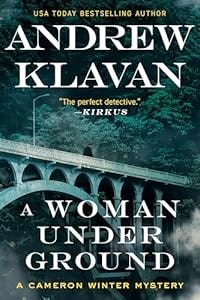
A Woman Underground by Andrew Klavan
I've read the other books in this series, and the thing that makes me keep coming back is the main character, Cameron Winters, a college professor who used to be an assassin for a government agency, and is tortured by the things he has done and by his sad childhood - which he always ends up discussing with his therapist. In this one he must track down his childhood love, who has gone missing and whom he suspects may be in trouble.
Content Notes: Aside from bad language, the main beef I have with this series is that in a few of the books there is pretty graphic violence and brief, sometimes crude descriptions of "adult" situations (ahem). Not every book in the series includes these things, but some have been too explicit for me, and this book was one. Because this series toes that line, I don't necessarily want to recommend it. I only keep picking up the books because I'm invested in the overarching story now, and I skim those pages so I can find out what happens to the main character. I just want him to find happiness, darn it! If this book were a movie I would say it's probably closer to an R rating, and I'm not sure if I'll keep picking them up since the level of the content is iffy for me. I like my books to stay PG-13 or below. (Also, why aren't books rated like movies are? Who do we need to talk to to make this happen?)
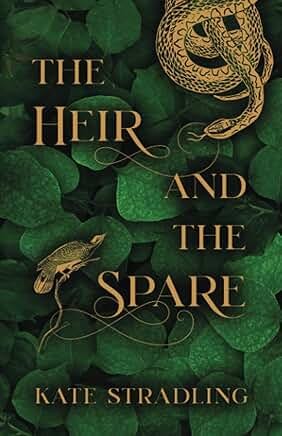
The Heir And The Spare by Kate Stradling
No, this isn't about Prince Harry.
In this fantasy book, Iona is tormented by her evil older sister, Lisenn, who is in line for the Wessett throne. A delegation from nearby Cambria arrives to make a deal for Lisenn's hand in marriage - but Iona is surprised to see that their prince is one of the classmates who tormented her when she was sent away to school. The author explained the political tensions between the different countries in a a really interesting way in this book that didn't feel contrived at all. Those tensions are interwoven with Iona's personal feelings for the prince as they develop from contempt to romance. I really enjoyed it, and this book was also clean!
Content Notes: The only content note I have is {spoiler}, the sister and another important family member end up being quite evil, and there is some death in the end.
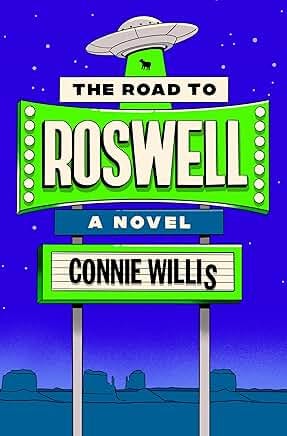
The Road To Roswell by Connie Willis
Francie is traveling to Roswell to talk her best friend out of marrying a UFO nut, when she ends up being kidnapped by an alien! What follows is a wacky road trip with a collection of characters picked up by the extraterrestrial, and it all wraps up in a very satisfying way. I thoroughly enjoyed the entire journey of this book - every character was so quirky and colorful, and the story was creative! This book reminded me of some of the stories my sister and I used to write with our high school friends, but in a grown-up, full-novel way. I loved it.
Content Notes: Some descriptions of skimpy shorts that Francie is forced to wear, mentions of some of the things that aliens do to people in stereotypical alien abduction stories, and some bad language, including Jesus's name in vain.
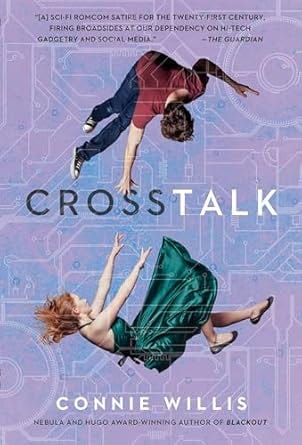
Crosstalk by Connie Willis
After really enjoying the above book by Willis, I picked up Crosstalk. This book is a mix between a rom-com and science fiction - Briddey and her fiancé are going to go through a revolutionary procedure that will allow them to sense each other's feelings but something goes wrong and instead Briddey discovers that a random co-worker can now read her thoughts! The rest of the book is about sorting out this mess. I thought this was a really creative plot, and the ending was very satisfying!
Content Notes: I'd rate this book PG-13 if it were a movie - bad language, and some sexual content (no scenes but talk about it).
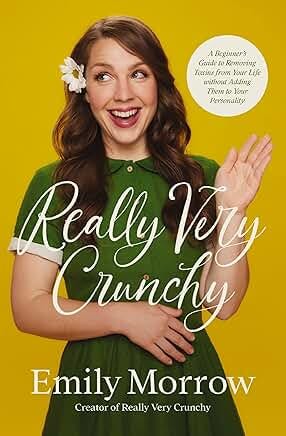
Really Very Crunchy by Emily Morrow
I read this book purely to fulfill a prompt on the reading challenge I am working through this year, which was "a book about health or nutrition". I also follow Emily Morrow on Instagram, so this seemed like an easy introduction to a genre I rarely read. Morrow tells you how to start dipping your toes into being a "crunchy" mom, but with no judgement or guilt and many humorous stories. I wouldn't consider myself crunchy, because I refuse to let myself get stressed out by toxins or pesticides or whatever, but I end up doing alot of crunchy things on accident (homeschooling, canning, sourdough, gardening, trying to buy more clothing with natural fibers). This book gave gentle advice and interesting suggestions and was entertaining, so I give it 4.5 stars.
My Dear Hemlock by Tilly Delahay
This book is inspired by The Screwtape Letters, only in this fresh version, a demon learns how to tempt a female subject. Delahay has so many insights into the female mind, and I found myself convicted at so many points while reading this book - and also amused and encouraged as the woman grows old and ultimately overcomes. If you haven't read The Screwtape Letters, you won't know what to expect, but once you get your bearings this book is fantastic for any Christian reader. Highly recommend.
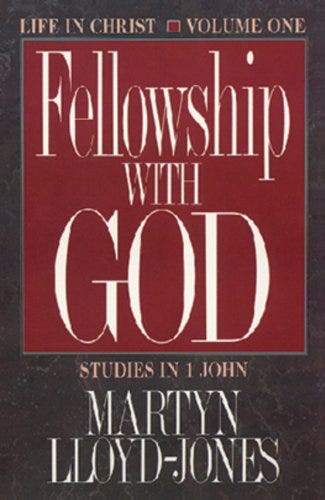
Fellowship With God by Martin Lloyd-Jones
This book was my devotional book this spring, and is based around sermons that Lloyd-Jones preached on 1 John 1. I picked it up because I was doing a study on 1 John at church, and this book provided some additional insight. Lloyd-Jones was a fantastic preacher in his time, and his sermons are so relevant today as well. These thin volumes are not a bad place to start with his writings.
Rembrandt Is In The Wind by Russ Ramsey
I do not know much about art, but I saw this book all over social media last year and I was intrigued. Each chapter talks about a different artist by exploring one of his most famous works, and woven throughout each introduction are deeper themes of faith. Not all these artists are necessarily believers, but Ramsey manages to turn your mind to things above through art appreciation. It was a beautiful book, and probably something I'll have my kids read in future years.
Content Notes: Some mentions of sexual failings of various artists.
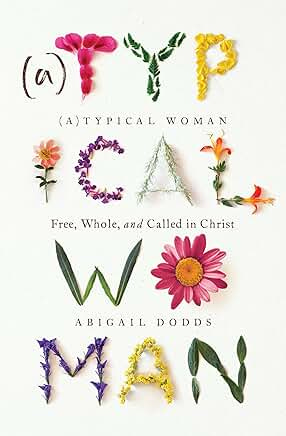
A-typical Woman by Abigail Dodds
I won't go into a full review here since I posted my review a couple weeks ago, but this book was another lovely devotional read. One thing I didn't mention in my official review was how thoughtful the chapter on single women was, and it made me think about how so many single women have wonderful wisdom to share with everyone, married women included. I quite enjoyed it, and will probably re-read parts of this book in years to come.
The Ballad Of Songbirds And Snakes by Suzanne Collins
I wasn't a huge fan of The Hunger Games books when I first read them over 10 years ago, but for some reason I became invested in the books/movies again recently and picked up this back-story of President Snow.
I'm not going to lie, this one was dark. I noticed a lot of people online hate it or didn't even finish it. It's not a happy book, but I found it so well-written, and the plot was well-done. This book isn't meant to have a happy ending, but the way Snow's selfishness was woven throughout was masterful. You kept wishing he would recognize the error of his ways, while knowing he wouldn't. You were never rooting for him, which I think was why I didn't mind this book. I don't like when villain backstories attempt to gain sympathy for the villain, but this book didn't do that. We see Snow slide into being a villain through this book, and it all starts with an over-concern with what other people think, pride, and looking out for his own interests over everyone else, even the girl he fools himself into thinking he loves. For me, this book provides a vivid picture of the deceitfulness of sin. Not sunshine-y, but impactful in its own way.
Content Notes: Some pretty gruesome violence.
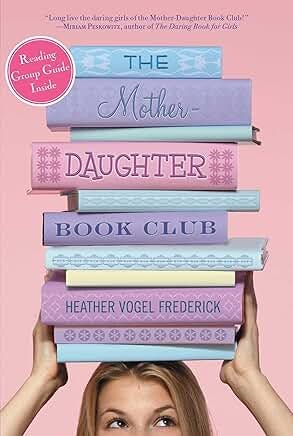
The Mother Daughter Book Club by Heather Vogel Frederick
This book follows four 6th graders as their mothers force them to participate in a book club reading Little Women. I picked up this book to see if my 12 year old might like it, since the characters in the book are about the same age. I think there is too much drama surrounding boy characters for me to want to hand it to my daughter right now. That said, I quite enjoyed it, and it reminded me of what it's like to be a middle school girl - in good and bad ways. Middle school is the worst.
Content Notes: Nothing serious, but a large focus on boys, lots of drama, and one very tomboyish character with some feminist plot lines.
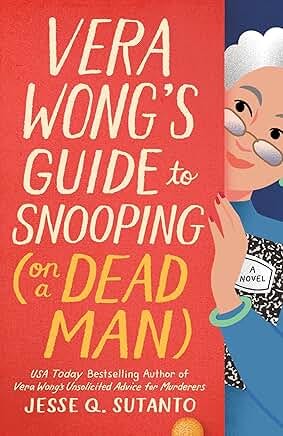
Vera Wong’s Guide To Snooping (On A Dead Man) by Jesse Sutanto
In this book Vera Wong returns as she stumbles upon another apparent suicide that she suspects is murder - and she eventually gets the truth with her relentless spirit, and lots of mouthwatering food. Vera Wong is a very colorful character, one you can't easily forget and can't help but enjoy.
Content Notes: Bad language, including the f-word, and the author is clearly a liberal socially. Not too in-your-face, just annoying mentions of different issues.
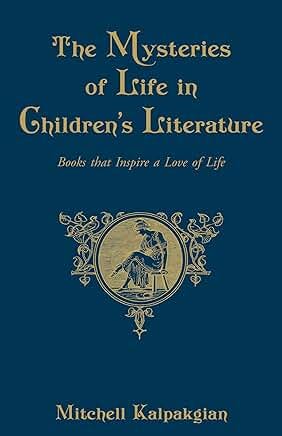
The Mysteries Of Life In Children’s Literature by Mitchell Kalpakgian
Andrew Pudewa recommends this on his reading list for educators, so I finally picked it up. Each chapter addresses a different theme that is explored in children's literature, with a heavy focus on fairytales. We learn how classic children's literature teaches about the mysteries of love, children, home, friendship, etc. This is a great introduction to some of the symbolism in certain stories that may otherwise seem too weird or go over one's head - but I could see as I read each chapter how children would still get the message, even though these "lessons" are never outright explained. And teaching through a story can be more effective than just making statements, can't it? Sometimes the writing got a little repetitive or felt like an academic essay, but the points were sound.
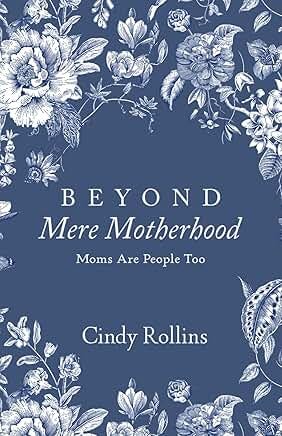
Beyond Mere Motherhood by Cindy Rollins
I try to read a homeschool book every year, and though I know Mere Motherhood is supposed to come first, I was glad I read this one. This book is like a conversation with an older homeschool mom about varying aspects of being a mother - being a thinking mother, a healthy mother, a reading mother, and many others. A lot of gentle encouragement in this book, and a lot of leads for other books I may want to read. I didn't agree with Rollins about everything, but the overall feeling I got from this book was of a kindly older woman, trying to share her experience even though she didn't do it all right. Very down-to-earth.
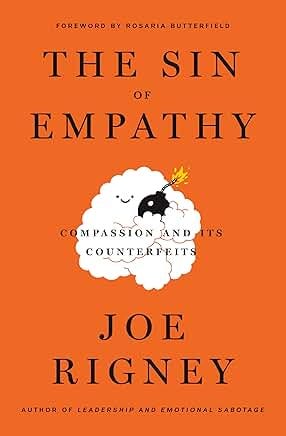
The Sin Of Empathy: Compassion And It’s Counterfeits by Joe Rigney
I listened to this book in one day while I cleaned my house and planted trees in my yard. Rigney talks about the sort of empathy that becomes dysfunctional, and how it can affect relationships and especially the environment in churches. I recognized so much of what he was talking about from my own experiences. I will probably listen to this book again, or read it more slowly, because there were so many good insights. I would say this book was more about diagnosing the problem than providing step-by-step solutions, but I thought his call in the last chapter to imitate Christ was impactful. As I said, I think I need to read it again to absorb it more fully.
Chernobyl's Wild Kingdom by Rebecca L. Johnson
I am reading another book related to nuclear disaster, so I decided on a whim to pick up this short book for kids - and oh my, I learned so much. This book gives a brief summary of nuclear power and the Chernobyl disaster, and then focuses on what has happened in the Exclusion Zone since then. The Exclusion Zone is an area that is restricted around Chernobyl because it still has high levels of radiation. Scientists expected that this zone would become a lifeless wasteland, but instead plants and animals have appeared to thrive there - like a radioactive nature preserve. The author talks about different theories about how the animals are being affected by the radiation, or why some of them appear not to be affected as much or at all. It was a short read, I read it in under an hour, but it was so fascinating! If you are interested at all in Chernobyl you should pick this one up.
That’s all for now!















